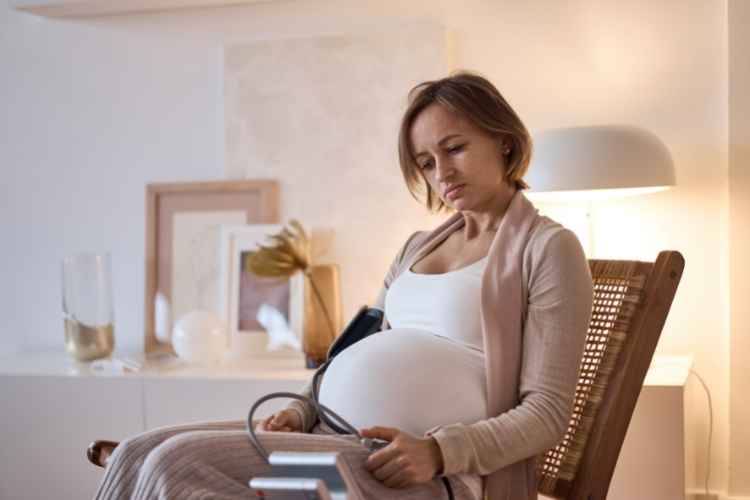While pregnant, most women experience at least one common health problem. While some issues can be minor and resolved with over-the-counter medication, others can be more serious. This post will explore some of the most common health problems experienced by pregnant women, along with advice on how to deal with them. If you are experiencing any health problems during your pregnancy, it is essential to consult with your doctor.
Morning sickness
One of the most common health problems during pregnancy is morning sickness. The name is a bit misleading because nausea and vomiting can occur on any day. For some women, morning sickness is just a minor annoyance. But for others, it can be much more severe.
Morning sickness can cause dehydration and weight loss, and in rare cases, it can lead to hospitalization. Despite its name, there is no surefire cure for morning sickness. However, there are a few things that can help relieve the symptoms. These include eating small, frequent meals, avoiding strong smells, and getting plenty of rest. If you are experiencing severe morning sickness, it’s essential to talk to your healthcare provider. They can help you manage your symptoms and ensure that you and your baby are healthy.
Anemia
Anemia is a common health problem during pregnancy, affecting up to one in three women. Anemia occurs when there is a decrease in red blood cells, which can lead to fatigue and shortness of breath. Anemia can also cause dizziness, fainting, and palpitations in severe cases.
There are several different types of anemia, but the most common type during pregnancy is iron-deficiency anemia. This occurs when the body does not have enough iron to produce red blood cells. Iron is found in meat, poultry, fish, beans, and leafy green vegetables. Some women may also need to take OTC iron supplements. If you are pregnant and think you may be at risk for anemia, talk to your healthcare provider.
Heartburn
Heartburn, also known as gastroesophageal reflux disease (GERD), is a common condition that can occur during pregnancy. Heartburn occurs when the stomach contents, including acid, flow back up into the esophagus. This can cause a burning sensation in the chest or throat.
Heartburn is often worse at night or after eating a large meal. There are several things that you can do to help reduce heartburn symptoms. Avoiding triggers, such as spicy foods, fried foods, and citrus fruits can help. In addition, eating small meals throughout the day and avoiding lying down immediately after eating can also be helpful. If heartburn is severe, your doctor may prescribe medication to help relieve the symptoms.
Constipation
Many pregnant women experience constipation at some point during their pregnancy. This is often due to the increased levels of progesterone, which can slow down the movement of food through the digestive system. While constipation can be uncomfortable, it is usually not harmful to either the mother or the baby.
However, severe constipation can lead to more severe problems like hemorrhoids and anal fissures. Pregnant women should eat a high-fiber diet and drink plenty of fluids to ease constipation. In addition, regular exercise can help to keep the digestive system moving. If these measures fail to relieve constipation, a doctor may prescribe a mild laxative.
UTI
Urinary tract infections (UTIs) are among the most common health problems that women experience during pregnancy. These infections can cause symptoms, including pain and burning when urinating, cloudy urine, and a strong urge to urinate even when the bladder is empty. UTIs are caused by bacteria that enter the urinary tract and multiply.
Pregnant women are more susceptible to UTIs because the growing uterus puts pressure on the bladder, making it difficult to empty the urine. This can create an environment where bacteria can easily flourish. UTIs can lead to serious health complications for both the mother and the baby if left untreated. Luckily, these infections are relatively easy to treat with antibiotics. However, pregnant women need to see a healthcare provider as soon as possible if they think they may have a UTI.
Mental health issues
During pregnancy, it’s common for women to experience a range of emotions, from excitement and joy to anxiety and stress. These emotions can become so intense that they develop mental health problems, such as depression or anxiety, for some women.
If left untreated, these conditions can have severe consequences for both the mother and her baby. Women struggling with mental health issues during pregnancy should seek help from a healthcare provider or mental health professional. Many women can successfully manage their symptoms and have healthy pregnancies with proper treatment.
The bottom line
Pregnancy is a time of many physical and emotional changes. While some women sail through pregnancy with no problems, others experience various health issues. These can range from minor annoyances, like heartburn and constipation, to more severe conditions like depression and anxiety.
If you are experiencing any health problems during pregnancy, it’s essential to speak with your healthcare provider. With proper treatment, many women can manage their symptoms and have healthy pregnancies.

